After severe floods devastated Kenya’s Tana Delta in 2024, CWS launched a recovery effort through the Mwanga Project, helping nearly 1,800 people rebuild their livelihoods with tools like livestock, training and agriculture support. Through that support, the Kipini Disability Fellowship emerged as a model of resilience—turning poultry and goat distributions into a sustainable, community-driven path to recovery and empowerment. In …
Stories of Change
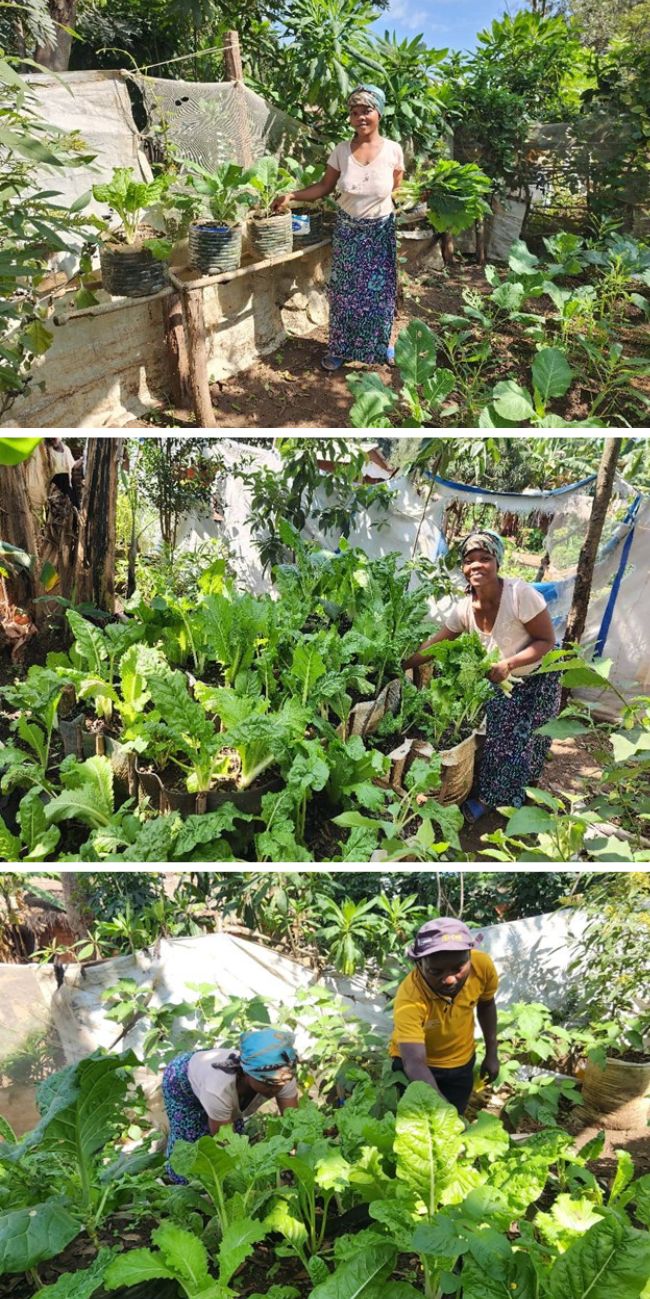
Aimerance in her garden
From Crisis to Cultivation: Aimerance’s Journey to Hope and Empowerment
After fleeing conflict in the Democratic Republic of Congo, Aimerance Bosco found hope and stability through the Wezesha Project, transforming from a struggling mother into a thriving farmer who now nourishes her family and empowers others in her community.
From Displacement to Determination: Aimerance’s Path to Empowerment
Aimerance Bosco spends her days caring for her four children, tending to her crops and supporting a strong community of other female farmers. But life wasn’t always so peaceful—only several years ago, Aimerance was forced to flee conflict in her home in the Democratic Republic of Congo. Suddenly, her family faced an uncertain future in a new country.
Unfortunately, the challenges didn’t stop once they arrived at the Nyarugusu Refugee Camp in Tanzania, and at first, life was difficult. Food rations were limited, forcing her family to survive on just one meal each day, and the lack of income made it nearly impossible to buy basic necessities like soap, clothing and school supplies for her children.
“We depended entirely on food aid, but it was never enough. I felt helpless because I had no way to provide for my family,” Aimerance shared.
Then, in 2024, Aimerance was invited to join CWS’s Wezesha Project (meaning “empower” in Kiswahili), where she received training in sustainable vegetable farming, group dynamics, gender equality and nutritional education to enhance her family’s diet.
From Survival to Productivity
With her newfound skills and resources, Aimerance established a kitchen garden around her home, growing spinach, amaranth, African nightshade and chaya. Within three months, her family’s diet improved, and her children became stronger and healthier.
Encouraged by her success, Aimerance expanded her vegetable production, growing enough to sell the surplus to her neighbors. The income she earned enabled her to buy basic necessities like soap, clothes and shoes for her children, which she struggled to afford before. The income also helps her to buy different varieties of food, enabling her family to eat balanced meals every day.
Through perseverance and hard work, Aimerance is now able to put food on the table and earn an income. She’s even encouraging other women in her community to participate in the project and build healthier futures for themselves and their families.
Aimerance’s Message of Gratitude and Hope
“I am forever grateful to the WEZESHA Project,” said Aimerance. “Before, I struggled to provide for my children, but today, I am a farmer and a mother who can support her family. This project has transformed my life and given me hope for the future.”
Her journey is proof that with the right support, resilience and determination, families like Aimerance’s can transform their lives and build a brighter future.
We would like to thank our partners, the Canadian Foodgrains Bank and the Primate’s World Relief and Development Fund for allowing this assistance to be possible. You can learn about our programs in Tanzania here.
Maria Bahati’s Journey of Gender Transformation and Family Empowerment
May 16, 2025
Maria Bahati, a young refugee in Tanzania’s Nyarugusu Camp, transformed her family’s future through CWS’s WEZESHA Project—overcoming gender barriers, gaining farming skills, and inspiring her husband and community to embrace gender equality. Her journey highlights how empowerment and collaboration can lead to lasting change. Breaking Barriers: Maria’s First Steps Toward Empowerment Forced to flee her home at a young age, …
Stories of Change
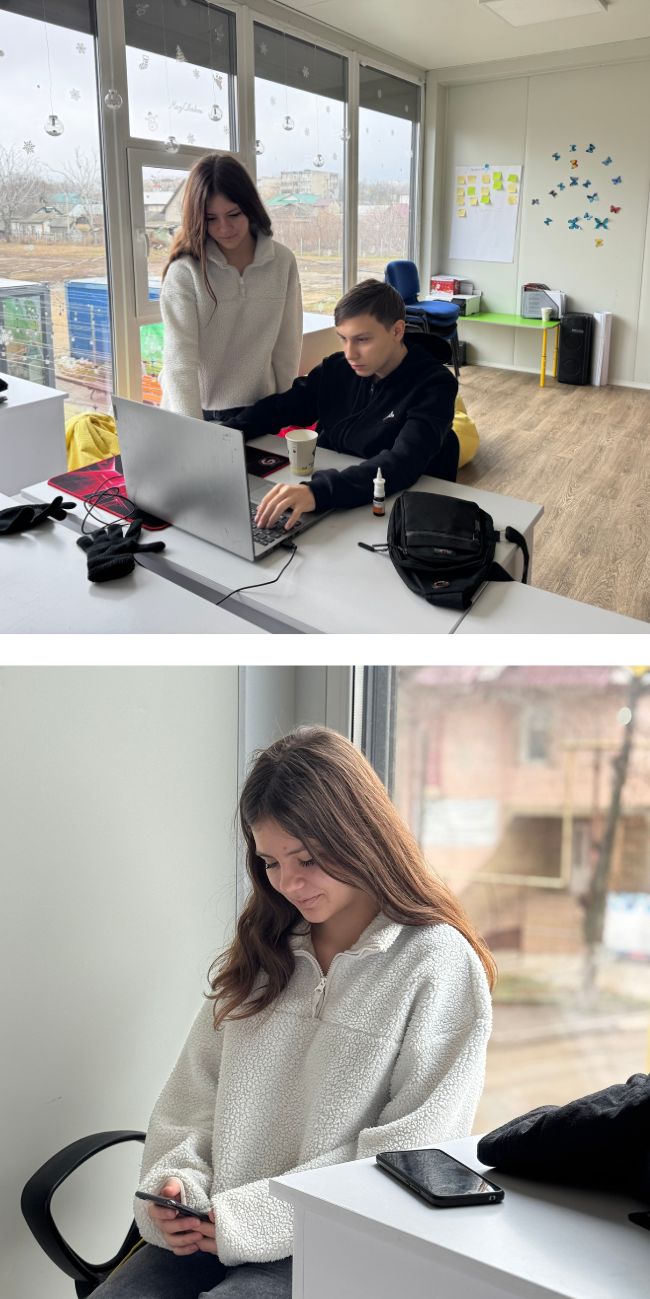
Daria at the Anastasis Educational Center
“I Feel Safe”: How Daria Found Peace, Purpose and Community in Moldova
Daria, a courageous 14-year-old from Ukraine, was forced to leave her home and family behind as war threatened her safety and peace of mind. In Moldova, she found not only refuge but a renewed sense of purpose at the CWS partner-led Anastasis Educational Center—a place where she could learn, grow and dream again without fear.
A Childhood Interrupted by War
At just 14 years old, Daria already knows what it means to be strong in the face of hardship. In a world where war has shaken her sense of peace, she has not only endured but has also learned to face each challenge with courage. Born in Kramatorsk, Ukraine into a close-knit and caring family, Daria and her younger siblings had a happy and carefree childhood. However, as the military conflict escalated into a devastating war that destroyed everything in its path, the safety they once knew became increasingly difficult to maintain.
In the fall of 2024, the situation deteriorated significantly, and the local infrastructure was severely affected, leading the family to seek a safer place for their children. “We got used to the sound of sirens and frequent power outages, but this way of living wasn’t good for me. I was always on high alert, constantly haunted by the fear that something bad might happen,” Daria recalls.
Initially, Daria came to Bălți to visit her cousins who had settled there. “In Bălți, I discovered a whole new world,” the young girl shared enthusiastically. “Here, the power doesn’t go out, there are no sirens, no rockets flying overhead and people aren’t sad and stressed.”
Finding peace and tranquility, she decided to stay in Bălți. While her family remained in Ukraine, caught up with work and daily responsibilities, Daria found a new home in Moldova. Her parents completed all the necessary paperwork so that she could live with her aunt, who is also originally from Ukraine.
A New Life at the Anastasis Center
In Bălți, Daria began attending the Anastasis Center*, a place that offered her more than just the opportunity to continue her online studies. Here, she found support, friendship and numerous opportunities for personal growth. “Anastasis is a bridge between what I had in Ukraine and what I can build today. Here, I can continue my studies, discover new things and meet new people. I also realized how much I love volunteering—it’s so important to help one another.”
Daria quickly integrated into the Anastasis Center community, forming strong friendships with other children. She is a dreamer, passionate about animals and determined to become a veterinarian. She actively participates in all the Center’s activities, completes her schoolwork responsibly and happily helps younger children, never hesitating to play and spend time with them.
Although she constantly misses her family, Daria looks to the future with optimism. “Here, at Anastasis and in Moldova, I have the chance to grow. I feel safe and believe I will be able to achieve my dreams with ease.”
Daria’s story proves that even in the most difficult circumstances, the right support and environment can transform a child’s life. At Anastasis, she has found more than just a refuge—she has found an extended family and a place where she can dream again with confidence.
*The Anastasis Educational Center is run by our local partner, Diaconia, and aims to help Ukrainian refugees heal and rebuild their lives. At the Center, program participants can receive psychological support, attend vocational classes, partake in fun activities and access computers to attend online school.
You can learn more about the work we are doing in Moldova to support Ukrainian refugees here.
Stories of Change
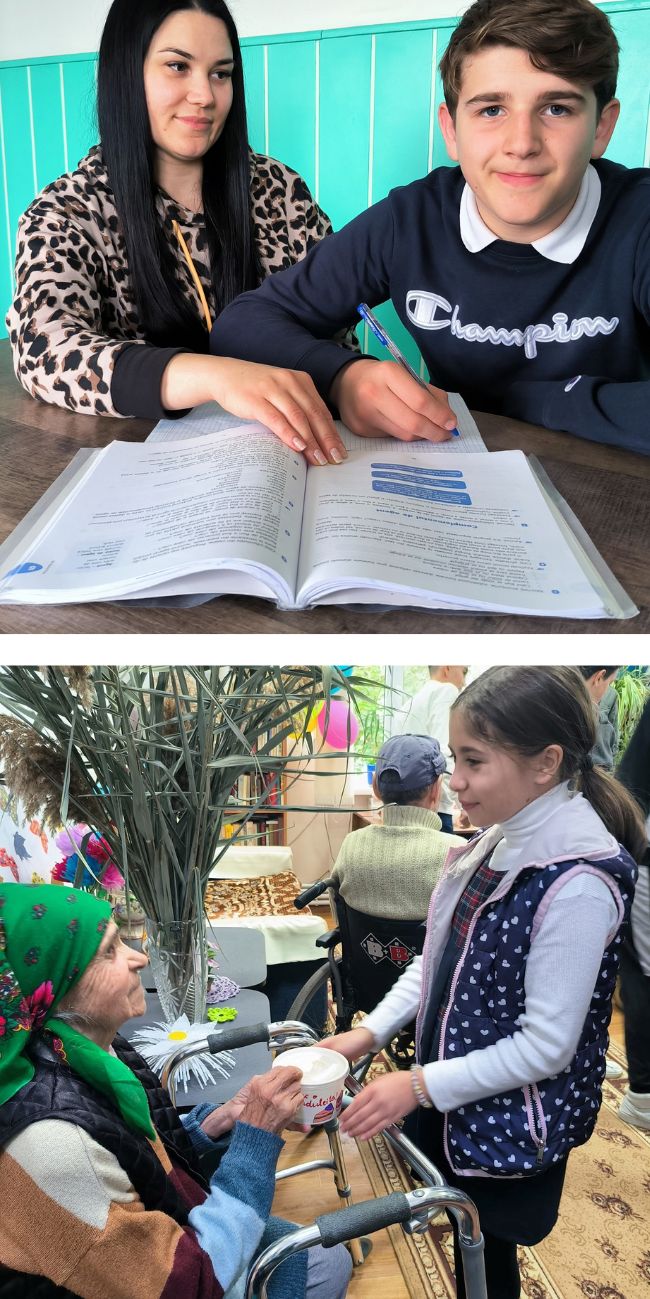
Above: Yana with a program participant Below: Gabriela delivering homemade cake at the Sărătenii Vechi Nursing Home
Little Acts, Big Hearts: How Refugees and Children Are Shaping Community Life in Telenesti
At the Diamond Day Center in Telenesti, Ukrainian refugees and local Moldovan families are coming together to create a welcoming, supportive community through small acts of kindness—from building a children’s mini-library to delivering homemade treats to elders.
At the Diamond Day Center in Telenesti, Moldova, community isn’t just a word—it’s a way of life. From its beginning, the Center, which is supported by CWS, aimed to create a space where Ukrainian refugees and host Moldovan communities could feel part of something bigger: a family, a safe space and a thriving community where everyone belongs.
A Book House Built with Love
That’s how the “Community of Ukrainians” platform was born—an initiative that quickly grew into an active and compassionate group of Ukrainian refugees eager to give back to the community that welcomed them. One beautiful example of their work is the mini-library project in Telenesti’s central park. Designed especially for children, the “Book House” offers storybooks, coloring books, toys and pencils for little ones to enjoy. Families can take books home, contribute their own and share in the joy of reading together.
Yana, a 30-year-old Ukrainian refugee and staff member at the Diamond Day Center, played a leading role in the initiative. She shared, “We do this with great love for each child who will come to read a book from here. It’s our way of showing gratitude for everything we have received here from the community. The pride we feel knowing we’re creating something meaningful is one of the most beautiful experiences. Together, we can create a better and more beautiful world around us!”
Spreading Compassion Across Generations
The spirit of kindness and community isn’t just for grown-ups. At the Diamond Day Center, children are learning that small acts of kindness can make a big difference. In October 2024, the children prepared handmade desserts and personalized boxes—each decorated with drawings and kind messages—for the elderly residents of the Sărătenii Vechi Nursing Home.
Gabriela, an 11-year-old participant, shared her experience: “I was so happy to visit the nursing home. I’ll never forget Grandma Maria’s grateful look when I gave her the cake we made. She smiled and thanked me, and it made me feel really good. I want to go back, and next time, I’ll learn a beautiful poem to make them even happier.”
These simple but powerful moments—a book shared, a homemade treat gifted, a poem learned—reflect what community is truly about. In Telenesti, refugees, children and elders are discovering together that even in times of hardship, kindness, creativity and connection can transform lives.
You can learn more about the work we are doing in Moldova to support Ukrainian refugees here.
A Mother’s Strength: How One Family Rebuilt Hope After Separation
May 7, 2025
After fleeing danger in their home country and enduring a painful separation, Roseline and her son Emmanuel reunited in the U.S. with support from CWS. As Emmanuel faced challenges adapting to his new community, Roseline was there to offer support and advocate for social, emotional and academic interventions with his school—helping him rediscover joy and belonging. From Separation to Safety …
Stories of Change
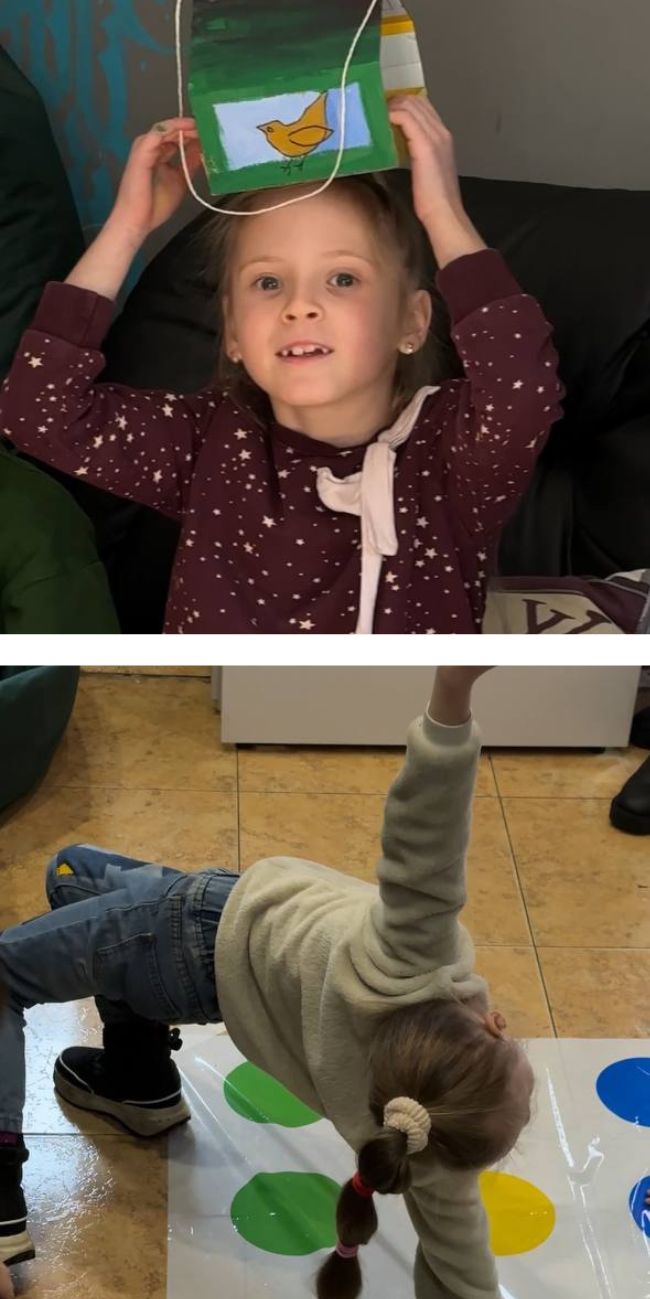
Top and Bottom: Violetta
Finding Her Way Back to Joy: Violetta’s Journey Through War, Healing and Dance
After war stole her sense of safety and silenced her joy, Violetta found healing and hope through group sessions offered by the “Support for Women and Children During the War in Ukraine” project. With support from CWS and Positive Women Odesa, she’s rediscovered her voice, her confidence and her passion for dance.
A Bright Future Interrupted
With natural curiosity and an unquenchable thirst for life, Violetta’s days were once filled with school, friends and time to devote to her true passion: dance. Her future was bright and wide open with possibilities.
Then, on February 24, 2022, Violetta’s world changed overnight when Russia launched its full-scale invasion of Ukraine. Many of her friends’ families were forced to leave the country in search of safety, and the activities she loved were all put on pause.
Violetta’s mother recalled how she tried to comfort her daughter in those initial days of the war, trying to create a sense of safety and peace. “I felt powerless,” she shared. “It was unbearable to see my child suffer.”
In August 2024, she heard about the “Support for Women and Children during the War in Ukraine” project from a friend, who also had a child that was already participating in one of the project’s free children’s group sessions. Implemented by CWS’s local partner in Ukraine, Positive Women Odesa, the project provides psychosocial support, among other essential services, to women and children in Odesa City.
Healing in Community
Violetta initially kept to herself, feeling shy and confused since she had never met any of the other children. She spoke little and quietly, unsure how to participate in group activities. Then, with the support of a psychologist, social worker and the other children, Violetta began to open up and feel more comfortable and confident in her new environment.
By the third children’s group session, Violetta was no longer just attending—she was thriving. Surrounded by new friends and fueled by renewed confidence, she fully embraced each activity with joy and boldness. In reclaiming her voice, she also reclaimed her passion, finally finding dance once more.
Violetta’s mother can once again see the bright, curious little girl she was before the war began. “I don’t know what we would have done without you,” she shared. “You are real magicians.”
The group sessions have become a source of stability and brightness in her life. Together, these girls are finding a community of friends to lean on, feeling empowered to use their voices and find their passions once more, forging a bright future filled with hope.
With support from CWS, the “Support for Women and Children During the War in Ukraine” project, implemented by our local partner in Ukraine, Positive Women Odesa, provides critical services for acutely vulnerable women and children in Odesa City, including psychosocial support and legal assistance, along with basic needs assistance like food, medications and other essential supplies. The project focuses on women, including those living with HIV, older women and women in the LGBTQ+ community. To learn more about our Ukraine response, click here.
Sewn With Hope: Elvira’s Path from Ukraine to Serbia
May 6, 2025
Forced to flee Ukraine in 2022, Elvira rebuilt her life in Serbia through creativity, community and determination—turning her sewing skills into a source of purpose, income and empowerment for herself and other refugee women. With support from CWS and partners, her family is now charting a path toward independence and stability. Stitch by Stitch: Reclaiming Purpose Through Creativity Before the …
Stories of Change
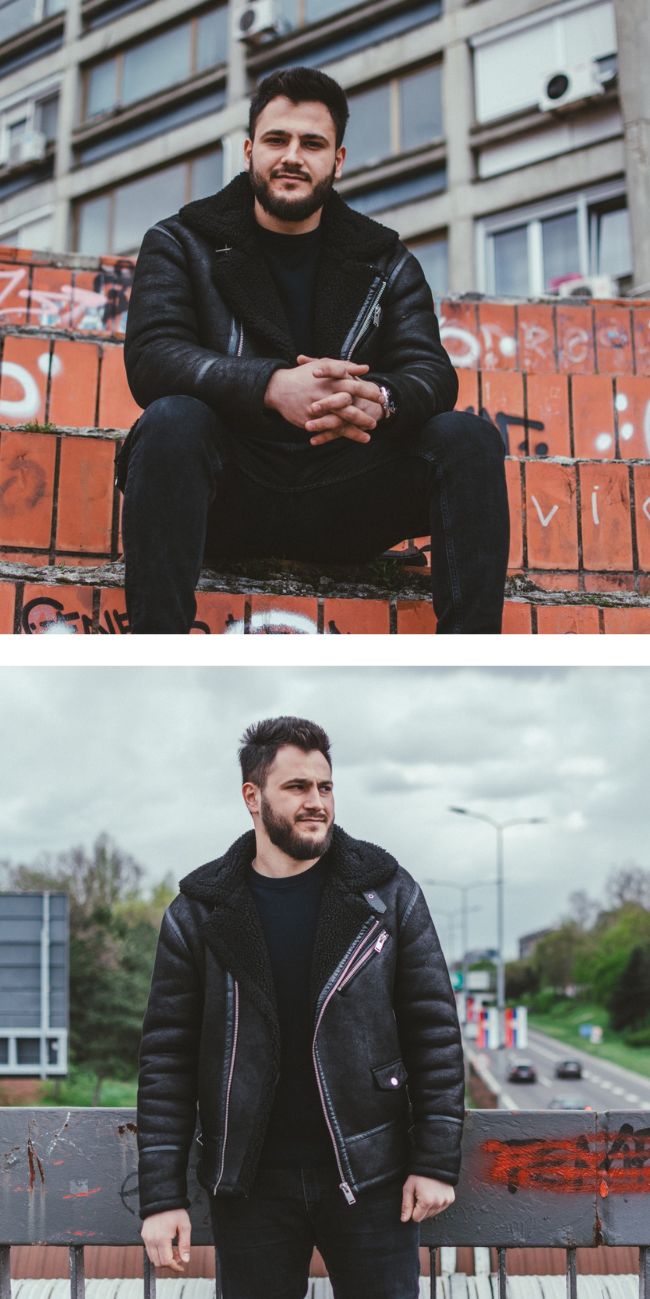
Top and Bottom: Ahmed in Belgrade, Serbia
Beyond All Limits: Ahmed’s Journey from Baghdad to Belgrade
After arriving in Serbia as a teenager from Iraq, Ahmed has spent over a decade building a life in Belgrade—overcoming language barriers, legal hurdles and housing challenges with determination and grace. Now on the path to Serbian citizenship and pursuing his dream of becoming a pilot, Ahmed’s story reflects resilience, belonging and the quiet hope of starting anew.
From Baghdad to Belgrade: Finding Home and Identity
Ahmed’s journey in Serbia began in 2014, when he arrived in the southern city of Nis with his father, who had come to pursue postgraduate studies, and his two brothers and two sisters. Just sixteen at the time, Ahmed left behind the streets of Baghdad for a life in the Balkans, stepping into an unfamiliar world.
When asked whether he’s faced particularly hard moments since arriving, he quietly points to the early language barrier as the biggest hurdle. Over time, he overcame it thanks to his father, who supported him through long evenings of learning, and to his first girlfriend in Serbia. When they met, she didn’t speak English, and he didn’t speak Serbian, so they taught each other. Today, most people wouldn’t guess he wasn’t born here. “You know that feeling when you live abroad, and you just can’t fully get the jokes or slang and something’s always missing?” he says. “Well, I get the jokes. I grew up here. Belgrade is my city.”
As things changed back home in Iraq, so did their lives in Serbia. By 2017, the worsening security situation forced Ahmed’s father to seek international protection for the entire family. In early 2018, they were granted subsidiary protection, a status that had to be renewed every year. It offered safety, but limited their freedom of movement. Eventually, his family moved to Türkiye. Ahmed stayed behind, navigating adulthood alone in a new country, eventually making his way to Belgrade.
One of the harshest restrictions he’s faced was not being able to travel. Subsidiary protection doesn’t come with a passport and Ahmed has carried the quiet weight of that limitation for years. “A colleague said to me, ‘Let’s go to the seaside, it would be so great!’ And I told her, ‘I’ve never seen the sea. I’ve never been to a beach. I’d love to go, but I can’t.’” Only in late 2024 did things begin to shift. When the law changed, Ahmed finally received permanent residency, and with it, the chance to apply for Serbian citizenship.
Despite years of uncertainty, Ahmed has never let restrictions dim his spirit. He speaks of Belgrade with the warmth of someone who’s truly grown roots. “Belgrade is Belgrade, there’s no city like it. Every day something’s happening. People are out in the streets, partying, living. Even if you don’t have money, you can feel the energy. This city is alive. It has a soul.” Ask him where he’d take friends visiting from Iraq and he has a list ready: Kalemegdan at sunset, the riverfront at Dorcol, quiet walks through Zvezdara forest, the charm of Zemun. His favorite café. A park bench in Dedinje. Places where the city speaks softly.
New Wings: A Dream to Fly and a Life Rebuilt with Support
Today, Ahmed works at the local airport, preparing meals for Arabic-speaking travelers. He sees comfort in the familiar spices and sees kinship between Serbian and Arabic cuisine. He swears by sarma, proja and cevapi (kebabs). But the airport isn’t his final destination. Ahmed is studying to become a pilot. His dream is to soar above the places he has called home—Baghdad, Belgrade and beyond and see the world from a bird’s perspective.
Recently, Ahmed found himself facing another challenge. He had to leave the apartment he had lived in for years with very little notice and nowhere to go. Thanks to CWS and our partners at the Belgrade Centre for Human Rights, he received a temporary housing accommodation for a month—just enough time to catch his breath and figure out his next steps. This short-term housing solution, part of a broader effort to support refugees and asylum seekers at critical moments of transition, has helped many like Ahmed avoid slipping into homelessness while they work toward more stable, long-term solutions.
Nowadays, he continues forward with quiet determination and open-hearted hope. He’s not sure where life will take him and he’s okay with that. “I’m not afraid,” he says. “I’ll try whatever comes. Anything’s possible.”
CWS is thankful for the generosity of Airbnb.org, whose support has allowed individuals like Ahmed to receive temporary housing as they establish their new and permanent homes. Learn more about our ongoing work in Eastern Europe and how CWS provides temporary housing support by visiting our website.
Stories of Change
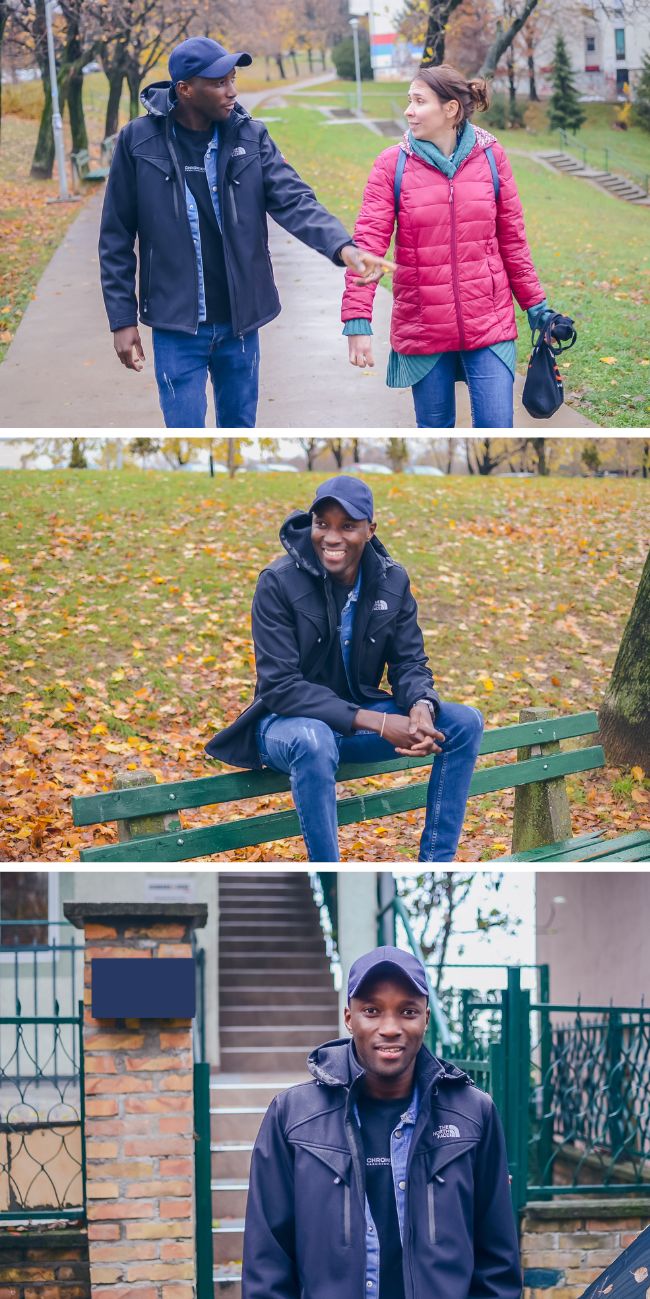
Top: Adamou being accompanied to his apartment Bottom: Adamou in front of his na
Adamou’s Journey: From the Borderlands of Niger to New Beginnings in Serbia
After fleeing violence in Niger, Adamou found safety and hope in Serbia with support from CWS and the Belgrade Centre for Human Rights. Now rebuilding his life with resilience and optimism, he continues to pursue his dreams while inspiring others with his kindness.
From Tragedy to Triumph: Adamou’s Journey to Safety
Adamou once led a carefree life in a small town near the borders of Mali and Burkina Faso. A spirited young boy from Niger, he always preferred chasing footballs to flipping through textbooks and could almost always be found on the field. But in 2018, the calm began to fray. The rising tide of violence in the region crept steadily toward his community, until in May 2020, it struck with full force.
While Adamou was away at a football tournament, an armed group attacked his hometown. Over 50 civilians were killed in the onslaught, including members of his own family. He was still just a boy when his mother urged him to flee, to survive, to start again.
That journey led him to Serbia.
A New Chapter in Serbia: Support and Shelter
Here, Adamou found safety at the House of Rescue, a shelter for unaccompanied and separated refugee and migrant children. With CWS partner, the Belgrade Centre for Human Rights, by his side as his legal representative, he gained asylum in the spring of 2022. It marked more than just legal status; it marked the beginning of healing, hope and possibility.
Football remained his anchor. He played with local clubs and never missed a match by his beloved Real Madrid or Chelsea. But off the field, Adamou was quietly building a new life, one step at a time. Today, he works as a Data Entry Clerk at an IT company. With his tall frame and striking presence, friends often tease him about a future in modeling. He laughs it off but doesn’t entirely rule it out.
Life threw Adamou another curveball in the fall of 2024, when he had to leave his apartment on short notice. With time running out and nowhere to go, the Belgrade Centre for Human Rights and CWS quickly stepped in to offer temporary shelter—a swift support that makes a world of difference when someone is suddenly left without a roof over their head or needs emergency accommodation.
Since launching this support in September 2024, CWS has provided temporary housing to 14 individuals, all foreign nationals living in Serbia. Some were refugees from Ukraine, and others had survived dangerous migration journeys or faced labor exploitation. For Adamou, the housing support was more than just a bed; it offered a safe pause, a chance to breathe and the space to gather strength for whatever came next.
Despite all he’s faced—the loss, the upheaval and the uncertainty—Adamou remains resilient, openhearted and quietly determined. He has a way of forming connections wherever he goes, and people are drawn to his kindness and optimism. When asked about the future, he simply smiles and says, “I’m patient. I know what I want, and I’ll get there.”
CWS is thankful for the generosity of Airbnb.org, whose support has allowed individuals like Adamou to receive temporary housing as they establish their new and permanent homes. Learn more about our ongoing work in Eastern Europe and how CWS provides temporary housing support by visiting our website.
